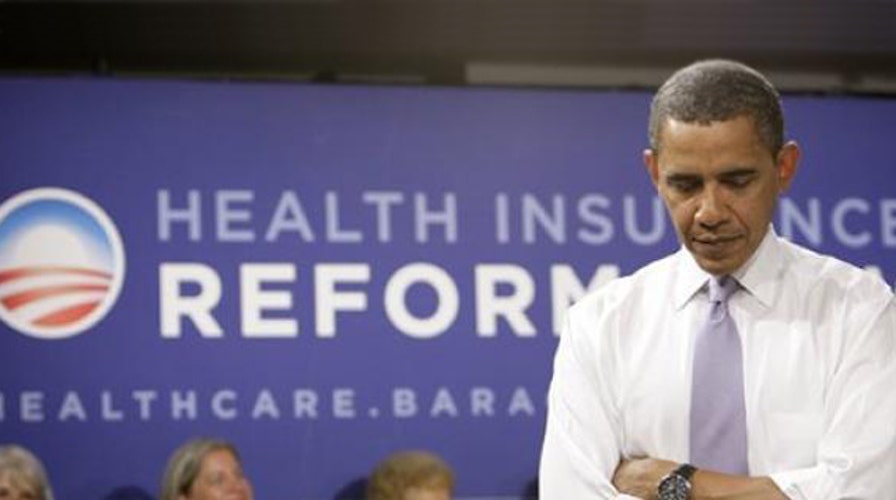President Obama’s recent pivot yet again to the economy has caused Americans to wonder why we remain in an economic rut.
Although there are signs of improvement, why is our country's growth so sluggish and unemployment rate still high?
A closer look at the June jobs numbers reveals a grave problem that is flying somewhat under the radar. And Friday’s unemployment announcement will most likely reveal the same problem.
[pullquote]
The June unemployment rate remained unchanged from the previous month at 7.6 percent, but the June underemployment rate, which includes those who have stopped looking or settled for part-time work, rose sharply from 13.8 percent to 14.3 percent.
This is partly due to the transition of employment from full-time to part-time, as the private and public sectors are forced into the perilous compliance standards of the president’s health care law.
Small businesses are a primary creator of jobs and the employer of half of all private sector employees. So, when analyzing this new part-time pattern, a look at the small business role in this trend is in order.
By and large, small companies don’t want to settle for part-time employees over full-time positions. But for many, hiring part-time employees is simply their only solution for staying in business.
The health care law forces businesses to offer health insurance to full-time workers. Surprisingly, the law defines full-time as just 30 hours a week or more. Contrast this with the fact that the average American non-farm worker puts in just over 35 hours a week.
Therefore, to remain viable, many companies and governments, like the state of Virginia for example, have been forced to cap part-timers’ hours in anticipation of the mandate.
While the administration recently delayed this requirement for one year until January 2015, many organizations had already adjusted their operations before the announcement of the delay, and some organizations are choosing to make workforce changes now rather than delay the inevitable.
Consider what small business owners have told the Small Business Committee. William J. Gouldin, Jr., president of a floral company in Richmond, Virginia, testified during an April hearing on how small businesses were complying with the health care law.
Mr. Gouldin articulated the law’s conundrum for small businesses accurately when he said:
“Every employer will be forced to define part-time employment as something below 30 hours per week and most will use between 20 and 27.5 hours per week. There are millions of people who currently work between 30 and 36 hours per week because that works for their lifestyle and income needs. …The fixed cost of health insurance premiums is already so high that many employers will pay the penalty of ‘time and a half’ because it is less than the marginal cost of health insurance per hour for an additional employee.”
At another hearing, Brian Vaughn, president of Nearly Famous, Inc. in Douglas, Georgia said:
“Prior to the law’s enactment – my goal had always been to hire fewer people for more hours. It is easier to retain employees that work full time. However, now that the law has passed, I have to consider options other than what makes practical business sense.
Now, because of what Washington has mandated, it seems to make more practical business sense for me to hire more people for fewer hours.
At a time when millions of Americans are out of work, is this really the right incentive? This is not what I want and it is not what is best for my employees, but in order to survive and be able to pay the employees that I have, it is what I will have to do.”
Their concerns are bolstered by data seen in recent polls and surveys of American entrepreneurs. A recent U.S. Chamber of Commerce small business survey found that among small businesses that will be subject to the employer mandate, one-half say they will cut hours to avoid the penalties.
It’s good news if the president is returning his focus to the economy. But Congressional Republicans never lost that focus. We have been fighting for solutions that will spur economic growth and create jobs for all Americans because we have been listening to what small business owners and employees have been telling us all along.
That’s why I have cosponsored common sense legislation by Rep. Todd Young, of Indiana, to redefine a full time employee as a worker who averages at least 40 hours a week.
Seven to eight percent unemployment, 14 percent underemployment, and a part-time economy should not – and cannot – be tolerated as the new normal in a nation as great as ours. Removing government-created obstacles to small business growth is what Washington should be addressing, and this focus should start with removing the herculean impediments to job creation found in the health care law.

